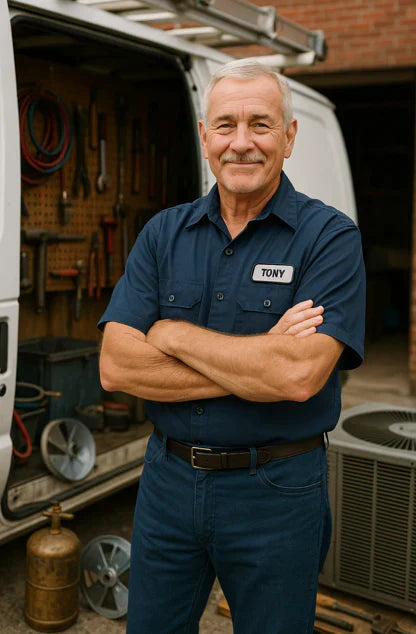🤔 Why Retrofit Tempts Equipment Owners
Imagine this: your compressor still purrs, your furnace works fine, but you're curious about that shiny R‑32 outdoor unit. “Can’t I just swap the coil and keep my furnace?” Not so fast, amigo.
The lure is real—retrofitting coils is cheaper than buying a whole system. But R‑32 is a mild A2L refrigerant requiring extra care. Retrofitting skips critical safety and performance match-ups. Here's why that can be a problem.
🛑 Safety Red Flags with Retrofits
A. Ignoring UL‑60335‑2‑40 Requirements
Retrofitting often bypasses critical UL mandates:
-
No guaranteed leak detection
-
No sealed cabinet airflow
-
No UL-certified airflow/ignition safeguards
As a result, retrofitted systems might not be code-compliant and could void insurance coverage.
B. A2L Flammability Risks
Swapping in R‑32 without updating suction/discharge lines, sensors, and cabinets means flammable gas could accumulate, and no one would know. This is more than theoretical—it’s breaching safety boundaries built into modern HVAC design.
⚙️ Performance Pitfalls
A. Mismatched System Ratings
A coil optimized for R‑410A may not handle R‑32’s different thermodynamic profile. This leads to:
-
Reduced SEER/SEER2 performance
-
Compressor slugging or overheating
-
Premature wear
Whole-system testing (AHRI matching) is skipped in patch jobs.
B. Pressure & Volume Misalignment
R‑32 runs at different pressures and requires slightly less refrigerant charge. But if the coil isn’t rated for those specs, you risk over/under charge—hurting efficiency and causing reliability issues over time.
🔍 Compatibility: It’s All About the Matched Set
Manufacturers like Carrier, Lennox, and Goodman insist on matched systems—pairing condenser, coil, and furnace with manufacturer-validated specs. Here's why:
-
AHRI matched efficiency ratings ensure cost/performance
-
Warranty compliance—retrofits often void warranty
-
Safety certifications—UL-labelling verifies compliance
-
Technical support—retrofitted setups leave you out in the cold
When components are designed to work together, you avoid the guesswork—and unexpected breakdowns.
💸 Financial Realities: Sticker vs. Sticker Shock
You might save a few hundred by reusing a coil, but:
-
You risk major warranty denials
-
You miss rebates (many require full system install)
-
You risk extra service call costs due to misdiagnosed issues
-
Your efficiency gains shrink dramatically—maybe you save 5% instead of 10%
In practice, full installs often cost 20–30% more, but deliver 100% of the benefits—including incentives, safety, and peace of mind.
🧠 Case Study: Why Retrofit Plans Fizzle
Homeowner in Midwest swaps coil, not furnace. Initial savings: $350
But:
-
System performance drops 7% vs matched unit
-
No rebate, no tax credit (requirements unmet)
-
Compressor overheats due to mismatched superheat/T larger charge
-
Warranty voids after minor leak
Net result: upfront savings wasted—and bigger costs down the road.
⚖️ Regulations & Codes Lay the Groundwork
-
EPA SNAP can disqualify retrofit from SNAP-approved R‑32 lists if mismatched
-
UL‑60335‑2‑40 and ASHRAE 15 require specifically UL-certified matched systems—retrofits often fail checks
-
Local building and mechanical codes may refuse permits for mismatched installs
Unlicensed DIY swap? You’re risking compliance, insurance, and resale.
✅ Tony’s Checklist: When Coil Retrofits Might Work
Even though full installs are usually smarter, retrofit could work if you:
-
Use UL-certified R‑32 coil for your furnace model
-
Add leak sensor, sealed cabinet, airflow ventilation
-
Confirm pressure/rises charge calculations
-
Retain manufacturer support and warranty coverage
-
Pass inspections and ensure AHRI or UL label remains intact
Most homeowners find this complexity isn’t worth the money—especially when full installs come with smooth, backed, shovel-ready benefits.
🔭 Tony’s Bottom Line
-
Full matched R‑32 systems are safest, most efficient, warrantied, and compliant.
-
Retrofits are patchwork at best—they often fail tests, lose rebates, and void coverage.
-
If you're determined to retrofit, dot every “i” and cross every “t”—but know you're walking a tightrope.
Invest smart, stay safe, and never retrofit blind. Need help picking or vetting a matched R‑32 system? I’m here, gauges in hand.
🛠️ From my toolbelt to your thermostat, stay comfortable — Tony 🛠️







